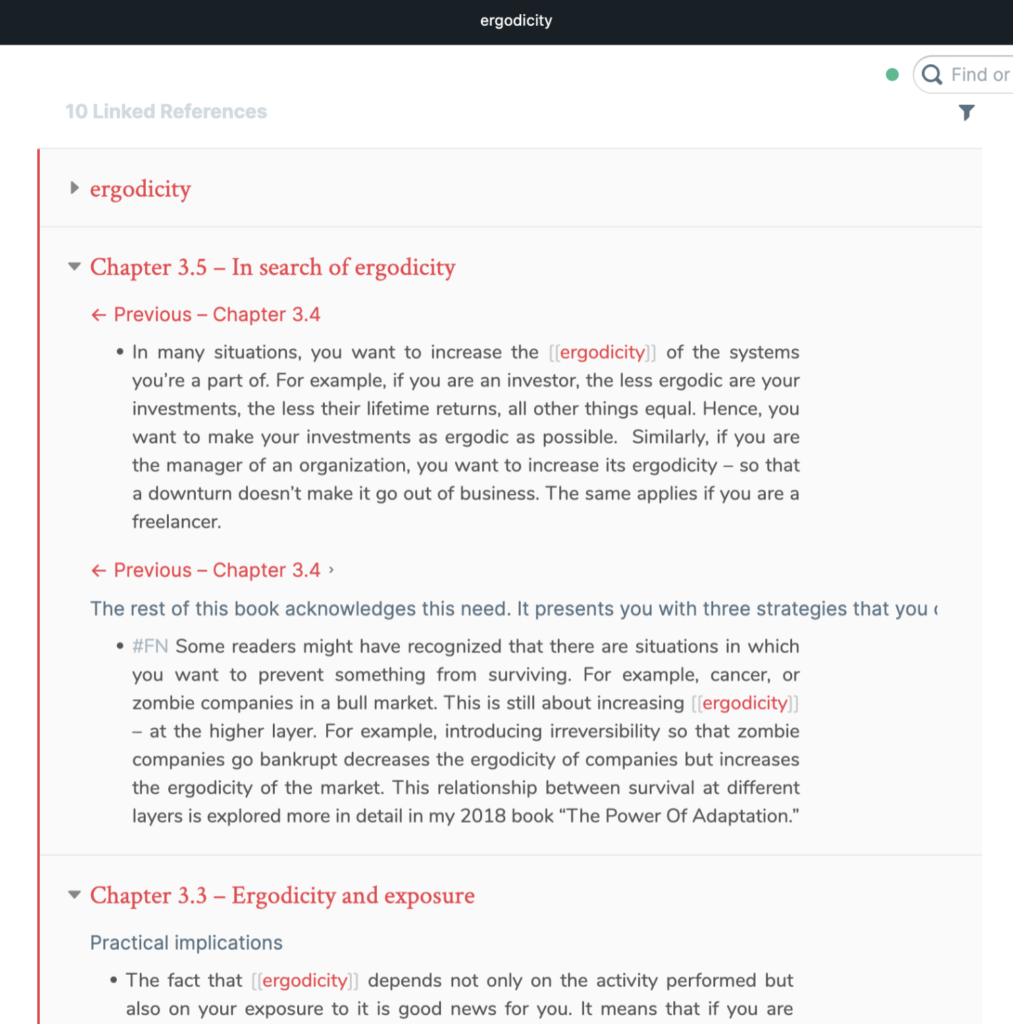I have just published the first Roam-native book, or “rBook” for short. Its title is Ergodicity, and in addition to the traditional ebook formats of pdf, ePub and mobi, it is also available in Roam json format.
I did it because I enjoy exploring new ideas non-linearly on the internet, and I wanted to do the same with books. Readers should be able to jump between concepts, go deep on what interests them, and skim through the rest. They should be able to take notes, and their notes should become an organic part of the text.
I knew that books could be more. I just didn’t know how. Until recently, there wasn’t a technology that made it possible. Then came Roam Research. I remember that, within the first ten minutes of using it, I realized that it was what I’ve been looking for.
rBooks are very different from just copying and pasting the text of a book into Roam. They still have a table of contents with the usual structure in numbered chapters, but they can do much more.
First of all, most of their information is contained in pages describing concepts. The relevant blocks are then embedded in chapter pages. You still get a “linear story,” but you can break free from it at any point. You can explore the current topic deeper, and from there, jump to related topics, following your interests.
As another advantage, you have the option to import the book into your own Roam graph. For decades we thought of books as “downloading information into your brain,” but never before the metaphor has been so literal. Because information in a rBook is structured into concept pages, it can neatly integrate into your pre-existing graph, keeping all the connections within the book and eventually linking to information pre-existing in your graph. Moreover, if you already have notes on the same topic, the information from the book will automatically append itself to them.
As a third advantage, examples and thought experiments are all tagged by topic (e.g., #example-business) so that you can quickly discover how a topic can apply to a particular field.
These are just three of the many innovative features of rBooks. I can only wonder with amazement about the possibilities that Roam-native books offer over traditional eBooks. This is the current frontier of learning, and we are the pioneers.
I’ve already published 6 books, but I’ve never been this excited to release a new one. I hope you’ll all enjoy it. (It’s here.)



